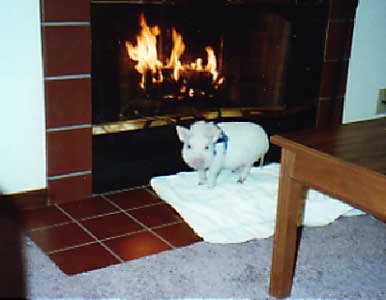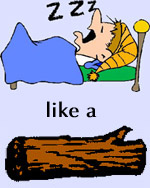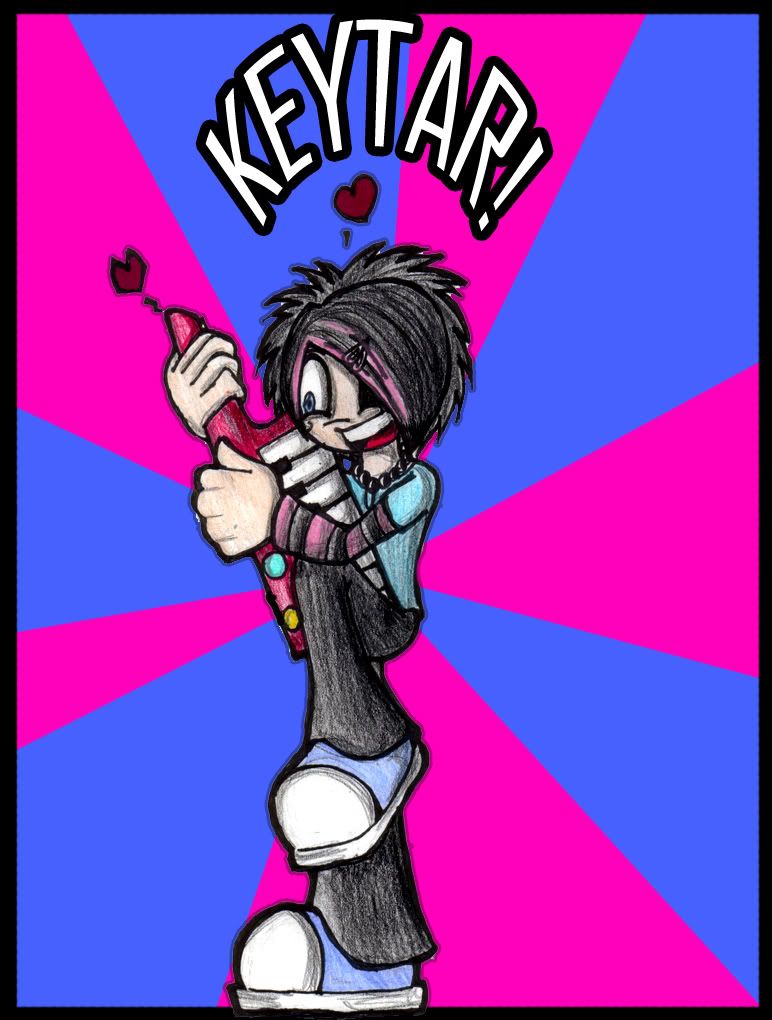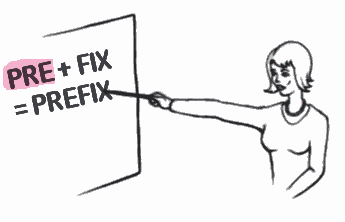Sunday, November 23, 2008
Balzac Questions pg 158-184
51. Narrator's parents could have just kicked him out of their house and let him live by him self.
There is a law of not allowing women to have any abortion or marriage before turing 25 years old.
52. The preacher is a very wise man so the narrator trusted him that he could help the Little Stream Stress. His live along with the Bible, so he wanted to stay in his own thoughts.
53. The narrator chose to give a book to the doctor if he was going to help. First the doctor didn't believe about the book, but the smart narrator had some part of the book on his jacket which made the doctor believe him.
54. The Little Seam Stress changed her style. Her shoes, clothes, everything changed. From a village mountain girl to a young lady.
55. Luo and the narrator felt betrayed by the Little Seamstress because she just left without saying anything to them, when they thought they were pretty close friends/relationships. Narrator had some connection with her while Luo was gone, but she left so he's upset with this too.
56. I think it means that the Little Seamstress's strength is to have a good talents with looks. Her reeducation by the boy was from reading her books which changed her from the moutain village girl to a high fashion stylish girl .
57. The boys finally believed that books were the one that led them into troubles they got. Even the Little Seamstress got adicted to books with them. Without books, they might have had more peaceful life.
58. No, the reeducation for them was a backfire. It ended up having both of them believe more into the books rather than forgetting about it. Meating the Little Seamstress made it worse too, they kept on reading bookis to her which let them not forget about it. The ideas changed but not towards the goals of Cultural Revolution.
Monday, November 17, 2008
Balzac book and movie
Balzac Questions pg 131-157
47. The Old Miller saw Luo and the Little Seamstress having sex in the water. Lou enjoys seeing the beautiful posture of the Little Seamstress into the water. He was worried when she didn’t come back up from the water after searching for his keys.
48. The narrator was very surprised by how Lou trusted him to guard the Little Seamstress, when he knew the narrator also liked her as well. This is related to his favorite book Jean Christophe, this boy was trying to do the exact same thing as the narrator.
49. The narrator in this part just acted as a storyteller. People in the village, mostly guys were very jealous of him, how he gets to stay close with the Little Seamstress. He felt like as if he was a secret agent and protecting the Little Seamstress. In his dream, the Little Seamstress became the narrator’s savior and she tended him afterward as well.
Balzac Questions pg 109-130
40. The main theme is music and the narrator is very attracted to it because he himself plays the violin.
41. Luo loves the Little Seamstress. He is willing to risk his life and go through a very dangerous path to reach her home. The red-beaked is a evil omen and the significance is death.
42. Luo and the Little Seamstress are getting closer and closer each day. If the Little Seamstress dies, Luo will faint, and loose his mind.
43. The headman asks Luo to fix his teeth since the people at the hospital did a poor job. It is going against the rule because they are suppose to be educated and they should be educated, not supposed to use their knowledge for anything.
44. He heard that the two boys were really good storytellers, so therefore he wanted them two to tell him a story.
45. He protest to the story because it's foreign. The headman insists the narrator to go back, go have talk at the security office but obviously the narrator doesn't want to, so Luo had to fix the headman's teeth in order to skip that step.
Balzac Questions pg 80-105
29. It was Four-Eyes' mother. The narrator acts as if he was Luo because Four-Eyes has a bad impression on the narrator and he thought his mom would be the same. The quote means that she believes at some point, the doctors and intellectuals will be useful again.
30. It was the Little Seamstress' idea and it is an interesting development because usually all those pop ups come from the two boys.
31. The buffalo was pushed off the side because people weren't allowed to kill working animals.
32. Four-Eyes is drinking the blood so that people in the village including the headman will believe that he's been reeducated. He has hidden books and he actually read them so he is still smart at the same time.
33. The function of the five sorceresses was to show that people were superstitious and didn't know better.
34. These books had a huge effect on him because it is a really precious object where people can't get in normal life. They believe that books have lives that can change people's life/personality.
35. If they get caught they will get in real big trouble but if they don't, it would satisfy their personal desire, and they will continue to be smarter. The outcome was that they didn't get turned in and the books were still kept secret.
36. Luo purpose that taking the books was for teaching Little Seamtress and "transform" her.
37. No, because they are stealing.
38. They important part is that he is changing his appearance himself. Underneath his "reeducated" self is the old Four-Eyes still desiring for books.
Wednesday, November 5, 2008
Balzac Questions p 61-79
23. The boys appeared as an army leader of the Mao Communist party. They wore very formal navy blue jacket with a dark gray collar made by the Little Seamstress, representing an army’s officer. The old miller showed a lot more respect to them than when Four-Eye visited and did as they asked, to sing his mountain folk songs to them.
24. They gathered on the bed and had some drink of liquor and "jade dumplings" with the old man.
25. She is asking for a mountain folklore with a mix of romantic realism. The old miller sang to the boys a song complaining about the bugs, which might just be a mountain tale about the bugs on there.
26. They are searching for these forbidden because they are really interested in it. They want to learn something beyond they are restricted and continue to search for literature s that are amazing like the Balzac story.
27. Four-Eyes simply took the old miller’s and the boys’ work as jokes and randomly changing it from it’s original meaning. He wouldn't accept the work the two boys did for him, he wouldn’t take it and appreciate it.
Monday, November 3, 2008
Balzac Questions p 45-61
sadistic (adj): syn: vicious ant: merciful
vigilance (n): syn: alertness ant: carelessness
substantiate (v): syn: affirm ant: disprove
garish (adj): syn: tawdry ant: tasteful
myopia (n): syn: nearsighted ant: farsighted
belligerent (adj): syn: aggressive ant: kind
redolent (adj): syn: scented ant: unscented
somnambulates (v): syn: sleepwalking ant: awake
16. Four-Eyes is a friend of Luo and the narrator. He's been living in the lower on the slopes of the Phoenix mountain, his background is "highly educated". His personality is bery insane.
17. All the Western Literature in China got banned in China durin the Cultural Revolution. It was for to restrain the people from knowing other ideas and informations. China back then was really strict unlike Europe. By the time it was unbanned, no more Western Literature were left in China.
18. Breaking of Four-Eyes' glasses nearly caused Four-Eyes to become blinded. It was a chance for the two boys to help him, to get their books back from him as a return.
19.The pang of jealousy through the narrator’s body was caused from me him wanting the little seamstress and to her to have same feeling as him. Both equal, like the book Balzac story.
20. The narrator copied passages from the book onto his sheepskin coat. He hopes that it will lead him to a place where he has never been before. It connects to how the girl wanted to meet her mother, and in modern day, it's narrator seeing the new world.
21. They had a sex under a gingko tree. This is going to be a serious problem for the Little Seamstress, because her father will never accept it. It can be really dangerous to how the story meant for the readers.
Thursday, October 30, 2008
Balzac Questions pg. 21 to 41
prudent (adj.) - (syn) careful (ant) careless
pitiless (adj.) -(syn) ruthless (ant) merciful
capricious (adj.) - (syn) freakish (ant) predictable
precarious (adj.) - (syn) unstable (ant)easy
anthracite (n.)- (syn) coal (ant)
livid (adj.)- (syn) ashy (ant) colorful
poultice (n.) - (syn) cataplasm (ant) wrappings
10. The Chinese Seamstress has a long pigtail that goes over her shoulder, and her eyes are very attractive and beautiful. Her feet are in good shape. Her ankles are wrapped with white socks.
11. The Chinese Seamstress hasn't been educated, she can't read or write, and Luo wants someone that is inteligent and smart like him and his family's background. He needs someone that has a standard level of education.
12. They weren't really learning anything. So I guess it was difficult. People just had to live everyday and forget their pasts.
13. The "passionate abandon". He was crying for his pasts, how he had a good time with the little seamstress.
14. The letter, the different treatment, and inviting over to her place with girls. The letter made a path for him, the treatments were like medicine, and inviting was to make him feel better, she tried lots to help him out.
15. People can do anything to get their wish if you have a sincere heart. This girl couldn't accomplish what she wanted because she didn't have that sincere heart.
Tuesday, October 28, 2008
Questions & Grammar and Usage Practice and Application to Zhang Yimou's To Live
1. Why do yo think that the name of the movie is To Live?
They had lots of conflict during their life such as parents breaking up, Fugui coming back from war, parents getting back together, childrens dying before parents...and so To Live they had go through all these situations.
2. How does the main character, Fugui, represent life in China during this time period?
He works as a puppet show background musick/voice. He went to the war do defend China.
3. How specifically does Fugui's wife, Jiaz, adapt to the changing times?
They broke up in the beginning but their relationship got together again after war, and she became strong and had confident to fight back her husband.
4. In what ways did the loss of his house and fortunes, ironically, becomes the best thing that ever happened to Fugui and his family?
Loss of the son really hurt. But the daughter, when she died she left them a life, her son, so that made them cheer up alittle. The daughters husband stayed in contact with her Fugui and his wife and helped each other with life.
5. What do you think of Mr. Niu and what do you suppose happened to him near the end?
From what I saw on movie, his wife crying in the room by her self, I think Mr. Niu and his wife devorced after. Maybe they took all their money because he got moved down a place.
6. How do the two children become victimes of the political climate? Give specific examples.
The son was sleeping during school and then this car crashed into the school wall which fell on him. The daughter, when she just had a birth, she had a problem but the hospital only had nurse student who didn't know what to do and all the old doctors were locked at this other place because they were revolutionary.
7. The communist Revolution is widely seen to have been succesful in raising living conditions for millions of Chinese peasants. Give some positive example from the movie of improvements in living conditions and good results from the change in political system.
The people had the public kitchens and tables where everyone can eat. Public water where Fugui's wife work at, they give water to everyone like when they watch the puppet shows.
8. What is the final positive outcome for this one family? Explain
Marrying Wan Erxi. Having one soldier in the house protects all the family from military suspicions so no one would get kicked out of this their home. Second is the grand son that daughter left for them. That might have been the reason to have all the family members stay together.
9. To Live was banned in China, and the director, Zhang Yimou, and the leading actress Gong Li were barred from filmmaking for two years. What specifically do you think that the Chinese government objected to? Give at least two or three examples.
It gave the details of the revolution at the time. How Mao's decision was wrong. In the hospital they didn't have any doctors that had been educated, only those nurse students. Mao's decision of banning the educated people ended up causing some problems. Another example is when they arrested/killed the guy that beaten Fugui up before. They just took the top score guy and killed him.
10. Write your own movie review for this film. ( your rating, how many stars, on a scale of 1 to 5? Who would enjoy it?) A 5 to 10 sentence response would suffice. Be sure to refer to a remarkable scene to capture your reader's interest in the movie.I would give 4/5 stars to this movie. Overall this movie showed some family developments and the revolutions, which teached us alot of what was happening during this time. It had so many emotional moments that some tears came out of my eyes (just a little) like when the son died, the daughter one was...little scary. The part I didn't get was the relationship with those gambling people, and why this man tried to kill Fugui in the beginning. Other than that, it was an awesome movie. I think people that likes Asian histories would enjoy watchin this movie, like revolutions.
GRAMMAR AND USAGE PRACTICE AND APPLICATION TO ZHANG YIMOU'S TO LIVE
1. Participle
Tears were dropping from his eyes when his wife and his kid left him alone.
2. Absolute
All those crowded people stared at Fugui's blame on Youqing.
3. Adjectives
You can see it covered with blanket, underneath it was Youqing, bloody and sorrowful.
4.Action
After the grand son's birth, the daughter breathes so weirdly and blood dropps from everywhere, nurse students rushes through the hospital but never gets a proper docter.
5. Appositive
Youqing and Fugui's wife's vineger spice pot, not only for cooking, better for a weapon.
6. Methods for Painting Characters
2. "Youqing! wake up! Youqing! You need to go to school!"
6. The daughter had really good attitude towards everyone, who I bet wanted to fight back the guys that teased her but she stayed just like her and was even able to get a husband even with out a voice.
Balzac Questions: pg. 3-20
risible (adj.) - deserving to be laughed at rather than taken seriously (syn) ridiculous (ant) humorless
surreptitious (adj.) -done secretly or quickly, in the hope that other people will not notice (syn) furtive (ant) unconcealed
sonata (n.) - a piece of music for one instrument or for one instrument and a piano, usually dived intro three or four parts
audacity (n.) - brave but rude or shocking behaviour (syn) nerve
reactionary (n.)- a person who is opposed to political or social change
vertiginous (adj.)- causing a feeling of dizziness and fear (syn) woozy (ant) well
insidious (adj.) - spreading gradually or without being noticed, but causing serious harm (syn) dangerous (ant) unseductive
Questions...
1. The village headman assumed the violin is just a toy. Lou tried to fool the man by saying this music instrument can play a sonata called "Mozart Is Thinking of Chairman Mao". This made the conflict between the boys and the village is the boys are educated and allowed to do something the villagers are not to do.
2. The key players during the Cultural Revolution are Chairman Mao, and the young intellectuals who are boys and girls who had graduated from high school. The "young intellectuals are sent to countryside to be “re-educated”. The main purpose is probably Mao hated having the "intellectuals" thinking differently from his ideas.
3. Lou and the narrator aren’t really educated. They both went to school but never took an advanced level of education.
4. Lou didn’t want others to feel sorry for his father because he was just admitting his faults and he truly believed no one should be sorry by such an act.
5. The name of the mountain is “the Phoenix of the Sky”was the signify its high altitude; only a great magical bird like a phoenix can fly all the way up to it’s peak.
6. The source comes from cooper. The economy status of this region must be at a good quality because it has a natural resources.
7. Changing the time on their clock, made their time very wise. They learned to be very clever and have other ways to deal with common things.
8. Commonly the reeducation period usually was 2 years. But the fact that their parents were very educated doctors, it made them have a chance of 3 in 1000 to be able to go home.
9. Lou’s stories allowed the people to be entertained and let the time to pass by quickly. This might have insulted the villagers which might have let them hate the boys.
Thursday, October 2, 2008
Ching
The Character Ching in The Good Earth by Pearl S. Buck moved into Wang Lung’s land, and starts helping his land and he was actually “glad to do it” (168).
Ching in The Good Earth by Pearl S. Buck is paid really well from Wang Lung: “he set Ching to be his steward over the men and over the land and he paid him well, two silver pieces a month besides his food.” (171)
Tuesday, September 30, 2008
Integrating Quotations into Sentences
If you let go of a helium balloon it flies away.
IMPORTANT!
WHAT IS MEANT BY A QUATATION?Any sentence/paragraph/phrase/words taken word for word from the novel.
It does not mean only things in novel which are said by character
There are at least four ways to integrate quotations
1.Introduce the quotation with a complete sentence and a colon.
Example:
Thoreau ends his essay with a metaphor: "Time is but the stream I go a-fishing in."
-This is an easy rule to remember: if you use a complete sentence to introduce a quotation, you need a colon after the sentence.
-Be careful not to confuse a colon (:) with a semicolon (;).
2.Use an introductory or explanatory phrase, but not a complete sentence, separated from the quotation with a comma.
Example:
According to Thoreau , "We do not ride on the railroad; it rides upon us."
-You should use a comma to separate your own words from the quotation when your introductory or explanatory phrase ends with a verb such as "says, " "said," "think," "believes," "asks,".
3.Make the quotation a part of your own sentence without any punctuation between your own words and the words you are quoting.
Example:
Thoreau argues that "shams and delusions are esteemed for soundest truths, while reality is fabulous."
-notice that the word THAT is used in three of the examples above and when it is used as it is in the examples, THAT replaces the comma which would be necessary with our THAT in the sentence.
-You usually have a choice, then, When you begin a sentence with a phrase such as Thoreau says You wither can add a comma after says
4.Use short quotations--only a few words--as part of your own sentence.
Example:
Although Thoreau "drinks at" the stream of Time, he can "detect how shallow it is."
-when you integrate quotations in this way, you don’t use any special punctuation
-instead you should punctuate the sentence just as you would if all of the words were your own.
Monday, September 8, 2008
systematic
selective
punctilious
prudent
meticulous
judicious
foresight
fastidious
diligence
Sunday, August 31, 2008
What is filial piety?
credit:http://dictionary.reference.com/browse/filial%20piety
What does this concept mean to you, in your life?
This concept means a lot to me because I believe that I should respect those who are older than I am. I think that respect to elders is important because they have lived longer and have done more, which makes them at a higher "level" than I am. In my life, I practice it daily and believe that everyone should respect their elders.
Monday, August 25, 2008
The Good Earth
1. They are really poor.
2. I feel sorry for the women that is marring him.
3. This marriage is unnormal.
4. I guess the wife is not good looking.
5. Husband should help the wife too.
1. Why don't they do a marriage ceremony?
2. How do they choose their wifes?
Chapter two-
1. Easy life for him.
2. Good start for their new life style.
3. She is a slave...
4. BABY!
5. Now, his dad is happy.
1. Why doesn't the wife complain about the works?
2. When will O-lan speak out?
Conflicts between children and parents
Parents checking childrens stuffs without permission. - PRIVACY
Parents asking lots of question to children. - ANNOYING
Parents taking childrens belongings without permission. - ASK FIRST
Parents throwing away childrens things without permission. - WHAT IF THAT WAS AN IMPORTANT THING FOR CHILDREN
Parents cleaning up childrens desk without permission. - CHILDREN PUT THINGS WHERE THEY'LL KNOW THEY PUT THEM THERE.
My Name
If I had to change my name, I would change it to Yui. Same with Rei, it's simple and easy to memorize. It's not a common name either, and there's two combinations of character for Yui which is 結衣 and 優衣. The first one means "form" (like for forming a relationship) and the second one means "kind". Both of their meanings are great! Hard to choose...




















